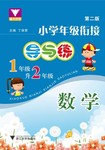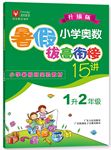题目内容
We live in a fast-paced and anxiety-filled world that oftentimes seems to shift beneath our feet. Thus we are sometimes affected by fears or anxiety impacting our life. For as long as I could remember I had struggled with anxiety. After I left university, I made friends with a Moroccan woman at work. One day she invited me to her and her family back home. I wanted to, but I would have to travel there and I knew we would be in a very rural area. How would I cope with my ?
Then one day it to me that I had a life to live. I could choose to let anxiety me or I could go to Morocco and something different. I was 23 years old and had never been out of the UK alone. The journey to Morocco something inside me. I managed to cope with my anxiety. The sense of was overwhelming and still to this day when I get afraid of going somewhere alone, I remember how it felt when I arrived in Morocco.
Upon arrival I was so for the generous welcome I received. My friend’s family had arranged a welcome party. The people were so loving toward me. As a moment of felt in a faraway village, this reminded me that I was “good enough”, which helped to my anxiety.
Waking up the next day, in the morning light, I saw the area where we were. I was by how rural it was – and the realization that these people had very few .
In the days afterwards, I traveled around Morocco. We went to Marrakesh and the Atlas mountains. We had the most amazing food – lots of fresh fruits and vegetables.
At the end of my something inside me had changed. I realized I had not felt anxious for nearly two weeks.
Experiencing a different culture far away from home helped me to realize what is important in life, what really , and with that my anxiety . When I returned home I was much more active in my anxiety. Working with people, helping them their anxiety, is how I can share the love I found in Morocco.
Then one day it to me that I had a life to live. I could choose to let anxiety me or I could go to Morocco and something different. I was 23 years old and had never been out of the UK alone. The journey to Morocco something inside me. I managed to cope with my anxiety. The sense of was overwhelming and still to this day when I get afraid of going somewhere alone, I remember how it felt when I arrived in Morocco.
Upon arrival I was so for the generous welcome I received. My friend’s family had arranged a welcome party. The people were so loving toward me. As a moment of felt in a faraway village, this reminded me that I was “good enough”, which helped to my anxiety.
Waking up the next day, in the morning light, I saw the area where we were. I was by how rural it was – and the realization that these people had very few .
In the days afterwards, I traveled around Morocco. We went to Marrakesh and the Atlas mountains. We had the most amazing food – lots of fresh fruits and vegetables.
At the end of my something inside me had changed. I realized I had not felt anxious for nearly two weeks.
Experiencing a different culture far away from home helped me to realize what is important in life, what really , and with that my anxiety . When I returned home I was much more active in my anxiety. Working with people, helping them their anxiety, is how I can share the love I found in Morocco.
| 小题1: |
|
| 小题2: |
|
| 小题3: |
|
| 小题4: |
|
| 小题5: |
|
| 小题6: |
|
| 小题7: |
|
| 小题8: |
|
| 小题9: |
|
| 小题10: |
|
| 小题11: |
|
| 小题12: |
|
| 小题13: |
|
| 小题14: |
|
| 小题15: |
|
| 小题16: |
|
| 小题17: |
|
| 小题18: |
|
| 小题19: |
|
| 小题20: |
|
小题1:D
小题2:A
小题3:D
小题4:D
小题5:B
小题6:B
小题7:A
小题8:A
小题9:A
小题10:D
小题11:C
小题12:D
小题13:D
小题14:C
小题15:B
小题16:C
小题17:C
小题18:A
小题19:B
小题20:D
试题分析:本文的作者一直都很焦虑,对于生活有太多的担忧,不能乐观地面对一切。在一次去Morocco的旅行之中学会了通过分析爱来克服焦虑和担忧。告诉我们如果想克服人生中的困难,最重要的是心中有爱。
小题1:动词辨析。A派,送B咨询C打电话,召集D参观,访问;根据下文我到Morocco可知本句是指有一天这个朋友邀请我去看望她。
小题2:A 词义辨析。A独自B很快,迅速C自由的D安全的;根据下文29空前I get afraid of going somewhere alone可知我不得不独自一个人去Morocco看望朋友。
小题3:D 名词辨析。A工作B好奇C想家D担忧;我不得不独自一人去那里。而且我知道那是一个很荒凉的农村地区,我怎么才能处理好自己的担忧呢?
小题4:D 固定句式;sth occur to sb某人突然想起某事;有一天我突然想起,我要过自己的生活。本句中的it是形式主语,真正的主语是后面的that引导的主语从句。
小题5:B 动词辨析。A留下深刻印象B控制C到达D说服;我可以选择让焦虑控制自己或者我去Morocco体验一下不一样的东西。
小题6:B 动词辨析。A享受B体验C拿走,花费D实验(名词);我可以选择让焦虑控制自己或者我去Morocco体验一下不一样的东西。
小题7:A 动词辨析。A改变B移动,感动C支持D给…留下印象;本句是指去Morocco的这次旅行改变了我内心深处的一些东西。
小题8:A 名词辨析。A成就B恐惧C失望D尴尬;我成功地处理了自己内心深处的恐惧,这种成就感是对我的震撼十分巨大,直到今天我们仍然能够感觉到。
小题9:A 形容词辨析。A好的B害羞的C害怕的D自豪的;我还记得当我到了Morocco的时候,我得感觉是多么得棒!
小题10:D 形容词辨析。A难过的B困惑的C自信的D感激的;固定搭配be thankful for…对…感到感激;本句是指当我到达Morocco的时候,有很多人对我的到来表示热烈欢迎,对此我十分感激。
小题11:C 名词辨析。A怀疑B运气C爱D惊讶;有如此多的人来欢迎我,对我来说这是一个充满了爱的时刻。
小题12:D 动词辨析。A提高,改善B拿住,握住C保护D减少;人们对我的欢迎让我感觉很好,这有助于我减少自己的焦虑。
小题13:D 动词辨析。A鼓舞,鼓励B感动C使…开心D使…震惊;第二天早上当我醒来的时候,我看见了自己所在的地方,被这个地区的荒凉惊呆了。这个地方实在是太荒凉了。
小题14:C 名词辨析。A土地B困难C资源D朋友;看到这个地方很荒凉,而且当地人可以利用的资源真少。
小题15:B 动词辨析。A发现B探索C检查D认出;在接下来的几天里我们游遍了Morocco,还去探索了Atlas山脉,吃了很多的鱼和水果之类的食物。
小题16:C 名词辨析。A机会B匆忙C逗留D生活;我在Morocco逗留的最后几天里,我内心深处的一些东西已经发生了改变。
小题17:C 动词辨析。A统治B存在C重要,有关系D伤害;体验一种远离故乡的文化帮助我意识到生活中最重要的是什么,有关系的是什么。明白了这一切,我内心深处的焦虑消失不见了。
小题18:A 动词辨析。A消失B扩张C保持,仍然D去除;体验一种远离故乡的文化帮助我意识到生活中最重要的是什么,有关系的是什么。明白了这一切,我内心深处的焦虑消失不见了。
小题19:B 动词辨析。A表达B挑战C忘记D记得;当我回到家乡以后,我更加积极地挑战自己的焦虑,让自己更加能够克服自己的焦虑,积极地面对人生。
小题20:D 动词辨析。A下落B注意到C通过D克服;和人们在一起帮助他们克服困难是我学会如何分享在Morocco学会的爱的最好方法。

练习册系列答案
 浙大优学小学年级衔接导与练浙江大学出版社系列答案
浙大优学小学年级衔接导与练浙江大学出版社系列答案 小学暑假作业东南大学出版社系列答案
小学暑假作业东南大学出版社系列答案 津桥教育暑假拔高衔接广东人民出版社系列答案
津桥教育暑假拔高衔接广东人民出版社系列答案 波波熊暑假作业江西人民出版社系列答案
波波熊暑假作业江西人民出版社系列答案
相关题目
